SHS Students Spread Their Wings After a Stressful School Year
- Details
- Written by Sydney Piccoli
- Hits: 2490
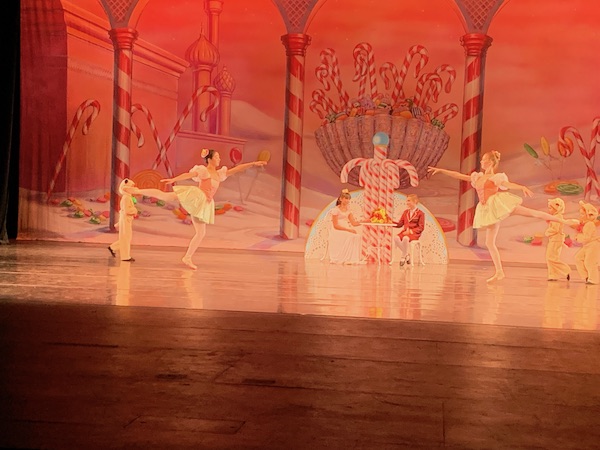 Rising Seniors Emily Shiromonto is doing a summer intensive in ballet in NYC.It’s been a month since Scarsdale schools went out of business for the summer. Students have happily traded in their backpacks and textbooks for beach bags and swimsuits. Without the pressure of school on their shoulders, more Scarsdale students are undoubtedly out and about—the question is what are they busy doing?
Rising Seniors Emily Shiromonto is doing a summer intensive in ballet in NYC.It’s been a month since Scarsdale schools went out of business for the summer. Students have happily traded in their backpacks and textbooks for beach bags and swimsuits. Without the pressure of school on their shoulders, more Scarsdale students are undoubtedly out and about—the question is what are they busy doing?
Several students are broadening their horizons through academic programs and science research. “I am spending my summer doing a math program called M3C at Mercy College for four weeks ... I hope to get better at math seeing it is a subject that I want to improve in,” mentioned Wubet Jean-Baptiste ’22. Maggie Peng and Ronan Gandhi, two rising seniors enrolled in Scarsdale High School’s science research course, have been working at laboratories. “I’m doing science research on a technique called chest wall strapping, which we’re hoping can help patients with chronic obstructive pulmonary disease (COPD) breathe more easily. It’s all remote, so I do most of my work on my own with a few Zooms each week,” explained Peng. “Because I'm doing work independently, there's definitely a big part of the lab experience that I'm missing out on.”
After a long year of homework and studying, many students are also spending more time focusing on their passions. “I've been going to a ballet summer intensive camp in the city ... So far, I feel that my technique and the way I am expressing myself while dancing is improving, so I hope to get even better at dance during the last weeks of the camp,” remarked Emily Shiromoto ’22. After a rise of anti-Asian hate crimes, however, summer trips to the city pose several concerns for Scarsdale residents. “In terms of the commuting, due to the hate crimes against Asian Americans, I am more afraid of being attacked than I was before COVID. In some ways, I am more worried about the commuting than the actual camp and dancing,” added Shiromoto.
Scarsdale students are also volunteering their time to help those in need. Juniors Ava Londa, Anna Forest, and Justine Karp are counselors at Sunrise Day Camp, which serves as a day camp for children with cancer and their siblings free of charge. “Working with seven-year-olds who are either battling cancer or have siblings who are suffering has made me much more appreciative of life itself and the health of those around me,” mentioned Londa. “I have learned not to get too worked up or complain about the little things and focus on more important aspects of life,” she added. Ethan Hersch is working with the Zuckerberg Institute to help local businesses recover from the pandemic. More specifically, he is helping a business rehire old employees that were laid off last year and get new customers in the door. Even though the program is virtual due to COVID-19 concerns, Hersch has been able to experience several educational benefits. “I’ve learned that businesses mostly need help with social media and online advertising to attract customers,” he remarked.
Scarsdale teenagers can also be found working a variety of jobs at local pools, ice cream shops, and clothing stores. Ben Ewing ’22 is working at a snack shack in Ardsley for the summer, which has allowed him to meet teenagers from all around Westchester. Janmariz Deguia ’22 is a saleswoman at an American Eagle in Pennsylvania. “I work at a Crossing Premium Outlet so we get hundreds of people a day. People come from all over the country and it's so cool to talk to them,” she mentioned. “I’m glad that I work so directly related to clothes so I can always work on my knowledge of fashion and it’s inspired me to sketch designs in my free time,” added Deguia.
Eliana Zitrin ’22 is spending her summer working at a sleepaway camp and taking care of the staff kids. “I’ve had a lot of fun both with the kids during the day and with my co’s and other friends at night/periods off. It’s also just really nice to be back at camp doing all the traditions and feeling the whole sense of community that there always is here again,” she said.
As job markets become increasingly competitive, students can be found interning and broadening their networks as well. Charlotte Davis is interning for a local artist and helping her with social media and commissions. “I think I have become much more independent this summer. Getting my driver's license, having a job, and thinking about college has made me feel very excited for the future, and I hope by the end of the summer I feel content with what I achieved,” she remarked.
And last, Scarsdale students are also using the summer to get a head start on college touring and standardized test studying. “This summer, I am planning to do a bit of college touring. We had a road trip to Maine, and on the way back down we toured a few colleges in Boston. Other than that, I’ll mostly be preparing for junior year and the SAT,” said Emily Wang ’23. “I'm organizing my time well so that I can get some of my college stuff done before senior year as well,” mentioned Lydia Jin ’22.
Beyond working, interning, volunteering, and studying, Scarsdale students are prioritizing their wellbeing after such a stressful year. “After being cooped up for the majority of the past year, being able to get out of the house and travel has been really amazing... I realized that mental well-being isn’t negotiable under any circumstances, no matter what the surroundings are,” mentioned Wang ’23. As more public areas reopen and masks are slowly becoming less needed for the vaccinated population, Scarsdale teenagers are spending time with one another as well. “[The new mandates] allow me to meet with my friends more often in person, and to catch up with those who I simply interacted with digitally during COVID-19,” said Gandhi ’23.
Although Scarsdale students are doing a variety of activities this summer, one thing can be said for sure: they deserve a break. “Most summers I have been part of the swim team or traveled around the world, but this year I made it a goal to have no schedule,” concluded Deguia.
Lessons From The Pandemic: A Psychotherapist's Perspective
- Details
- Written by Rand Gruen
- Hits: 2307
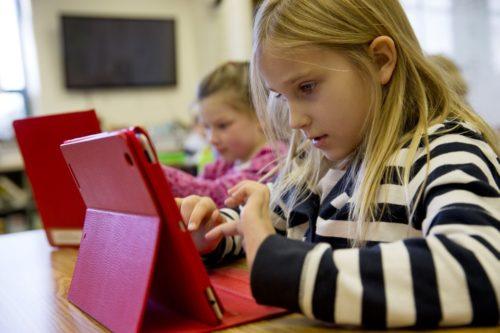 This article was submitted by Rand J. Gruen Ph.D.
This article was submitted by Rand J. Gruen Ph.D.
The last year and a half has been difficult for most of us. While it is unclear if the storm has passed entirely, it appears we are moving toward some semblance of normalcy in the U.S. As the Director of a fairly large outpatient mental health practice in Westchester and Greenwich, I have had the opportunity to work with families as they managed through the crisis. We have seen the challenges that children and families have faced and have worked closely with them to address these problems. There are a number of things to be learned from this experience.
Impacts on academic functioning
First, the pandemic has had a significant negative impact on many of our children academically. We observed impacts on kids of all ages from preschool through college. The impacts were multifaceted, differed from child to child, and did not impact equally. One of the hardest hit groups were kids with pre-existing ADHD and executive function weakness. While many children demonstrated increased difficulty concentrating, planning work, staying on track, and following through, kids with ADHD and executive function weakness had a particularly hard time in these areas.
Separate from the above, many children showed a reduction in motivation with regard to getting work done. As the pandemic proceeded, we came to believe that these problems were a function of the lack of shared community and structure that had been provided previously by the school through in-person learning. It became clearer as we continued to work with families that kids have a common expectation that once they walk into school, there is a level of engagement and conformity that is expected (i.e., you don’t get up and walk around, talk to your friends, or play videogames during class time). These expectations were reinforced on a daily basis. In the absence of that structure and in-person learning, kids and parents were left to provide structure on their own. Some kids fared better than others in terms of their ability to do this. Many lost the motivation to engage and do work.
One of the big takeaways from the pandemic with regard to academics is the importance of self-directedness. I have written about this previously. Simply put, self-directedness refers to a child's ability to define priorities, establish goals, create a plan to reach these goals, and follow through. The pandemic has shown us that we can and should do a better job of teaching our kids how to do this on their own, rather than depending on external structures like school to enable this capability.
How do parents enable self-directedness: parents need to shift their parenting strategy as their children enter adolescence. Ideally, they want to take on the role of a trusted advisor. They need to let their kids think through the issues inherent in a problem so that they get accustomed to considering different options and making choices. Parents can help their kids develop this capability by asking questions about why they think the ways they do, providing their own perspective, and letting their child think through the options. Ultimately, if the decision is important and the child is going to make the wrong decision, they can use their authority to override the decision, but the goal is to give children experience working through the decision-making process. That way, when external structures are absent (i.e., a child goes off to college or learning shifts to online), children are better equipped to self-regulate their behavior.
Impacts on social functioning
The pandemic reinforced the idea that social connectedness is critical to a child’s well-being and development. While I am not aware of the results of definitive studies that have been done, we observed a higher-than-normal percentage of kids who showed signs of malaise, apathy, disengagement, lethargy, anxiety, and depressive symptoms. These observations are consistent with a recent study by the Kaiser Family Foundation (Panchal et al., Feb, 2021) that found that 25% of young adults started or increased substance use during the pandemic and 26% reported serious suicidal thoughts during the pandemic compared to 11% for all adults. Mental Health America reported that young people ages 11-17 were 9% more likely to seek treatment for mental health in 2020 than in 2019 and they reported the highest level of anxiety and depression of any age group in the study. Finally, among people who reported moderate to severe anxiety or depression during the pandemic, 70% reported that loneliness and isolation played a central role in causing these problems.
Based on our observations and the research cited above, one can conclude that the pandemic caused disruptions in peer relationships. At times, children could not interact with peers at all, and at other times, interactions were limited. These disruptions, in turn, likely contributed to the anxiety and depression experienced by teens and young adults.
Social relationships provide purpose and a sense of motivation and are central to a child's development. The confidence that comes from feeling successful socially translates to other areas of life including academics. As we re-approach normalcy, we need to facilitate childrens’ engagement in social relationships outside the home. Too often children get immersed in video games and social media to an extent that it limits time spent with friends and relatives. While I don't think there's anything wrong with many of the video games that exist, it's critical to facilitate a child's engagement with peers. Children who are shy, introverted, socially awkward, insecure, or who have social anxiety can use video games as a way to avoid peer interactions because they are threatening and anxiety provoking. Parents need to know their children and make a determination as to whether they are engaging in online media because it is interesting or because it is an escape. To the extent that the latter is true, they need to take extra care to facilitate social interaction and limit screen time.
Impacts on family functioning
The pandemic impacted family functioning. In some case, families enjoyed the increased time spent together. Working parents were now home during the day and could spend more time with their kids. College-age kids came home when universities shut down. This created additional time for family members to connect/reconnect. In other cases, the impact was negative. In these families, increased involvement led to increased conflict. Pre-existing problems surfaced, and with the increased stress brought on by the pandemic (i.e., confined living conditions, concerns about health risks, financial concerns, etc.), old conflicts and power struggles surfaced and new problems emerged. Parents fought over differences in parenting styles. As kid’s lost motivation to work, children and parents fought over how to create a sense of self-directedness and accountability.
For those who could seize it, the pandemic provided an opportunity. Working parents were more available to participate in therapy. College-age kids were around again to work on problems. Families entered therapy with a ‘second chance’ to address long-standing problems. For those who took the opportunity, the result was an increased capacity for effective communication and the creation of a more positive family dynamic.
 Rand J. Gruen Ph.D. is the Executive Director of Westchester CAPS, an interdisciplinary, outpatient mental health center providing individual therapy to children, adolescents, and adults; couple and family therapy; neuropsychological assessment; and medication management. Dr. Gruen received his B.A., M.A. and Ph.D. in Psychology from the University of California, Berkeley. He was formerly a fellow at Yale University School of Medicine and an Assistant Professor in Psychiatry at New York University Medical Center.
Rand J. Gruen Ph.D. is the Executive Director of Westchester CAPS, an interdisciplinary, outpatient mental health center providing individual therapy to children, adolescents, and adults; couple and family therapy; neuropsychological assessment; and medication management. Dr. Gruen received his B.A., M.A. and Ph.D. in Psychology from the University of California, Berkeley. He was formerly a fellow at Yale University School of Medicine and an Assistant Professor in Psychiatry at New York University Medical Center.
Letter to the Editor: Cheerleaders Need Clarification on Competing this Fall
- Details
- Written by Felicia Block and Isabel Finegold
- Hits: 2439
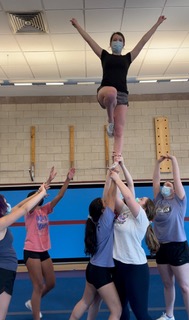 Dear Editor: By now, many in our community are aware of the story of our Scarsdale High School cheerleaders this year, but the summary, for those that do not, is simple:
Dear Editor: By now, many in our community are aware of the story of our Scarsdale High School cheerleaders this year, but the summary, for those that do not, is simple:
-The Cheerleading team was the only Scarsdale High School team that was prohibited from competition during the 2020-2021 school year.
-While the athletes were able to fully practice, they were not cleared to compete by the Scarsdale School District due to a sentence in the American Academy of Pediatrics (AAP) guideline that states , “Face masks should not be worn for competitive cheerleading...because of the theoretical risk that the mask may get caught on objects and become a choking hazard or accidently impair vision.”
-The theoretical risk was deemed a liability for the District and, therefore, the girls were not allowed to compete.
-30 neighboring schools, including Ardsley, Eastchester, Byram Hills and New Rochelle, competed during the competition season with the approval of their districts.
The result was a group of young women from Scarsdale practicing routines for competitions that they would never see. It was emotionally devastating in a time when they needed emotional support the most.
As guidelines from the Westchester County Department of Health have remained unchanged since the beginning of 2021 and the New York State and AAP guidelines continue to shift and change, the path forward for the Cheerleaders is unclear.
-AAP guidance was updated last week, but not the wording noted above for competitive cheerleading.
-AAP guidance does state that athletes can participate without masks for vaccinated individuals, but at the moment, mask wearing is still required indoors in school settings.
Nothing aligns, therefore, no guarantees are currently in place from the District for the team. The athletes and the families are confused.
In a recent email to Alice Granger, President of New York State Section 1 Cheerleading, the parent of a cheerleader inquired about incidents in New York State related to AAP guidance. In Granger’s reply she stated,
“In Section 1, we had at least 30 teams compete at some point during the 2 seasons. All of those teams practiced multiple times a week and I did not hear of any instances of any problems with a mask. [In addition], I am on the state committee and cheer teams competed throughout the state. We have had a meeting since the season ended and I did not hear of any problems with the mask from around the state. The athletes had no issue with practicing, tumbling or stunting with masks.”
Similarly, the coaches of the Scarsdale team noted that this year the game day and competition teams practiced after school in the spring without a mask-related incident, providing additional data that the theoretical risk associated with mask use is invalid.
Our cheerleaders, our athletes, are emotionally exhausted from living in a state of continuous uncertainty. While the fall season begins on August 23, 2021, preparations are beginning now. The cheerleaders have continued to pursue in person clinics with the coaches and private tumbling and stunting lessons at off-site locations. The summer will include our athletes perfecting stunting and tumbling skills while the coaching staff will be working with experts to procure music and choreography. The athletes and coaches deserve to know that a clear path to competition exists.
Cheer families are grateful for the support of the Scarsdale community, but need clarity from the Scarsdale School District that the team will be allowed to compete during the fall and winter seasons of 2021-2022. You can share your support for our athletes by adding your name to our list of community members that support the Scarsdale High School Cheerleaders: http://bit.ly/SupportSHScheer
Thank you,
Deirdre Angus
Felicia and Matthew Block
Isabel and Jonathan Finegold
Peter and Jennifer Godshall
Melissa Goldberg
Jaime Goodman
Yuki Hirose and Eric Brenner
Pamela Jakubowicz
Kristy and Greg O’Hare
Natalie and Jeff Reich
Ella Sosner
Batia Wiesenfeld
Debra and Matt Zik
for the parents of Scarsdale High School Cheerleading
SHS Cheerleaders Plead with the Board of Education to Allow them to Compete
- Details
- Written by Joanne Wallenstein
- Hits: 2310
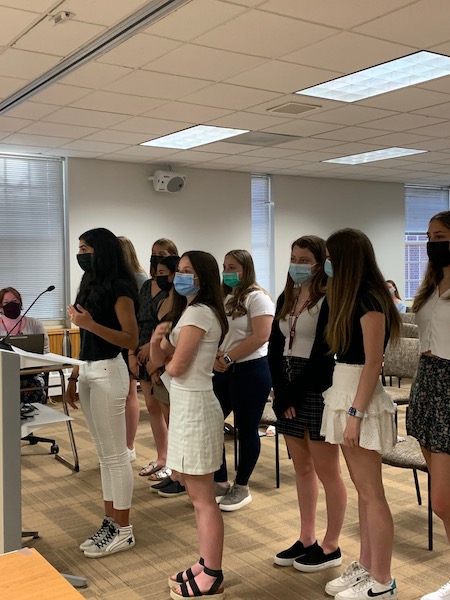 Scarsdale High School Cheerleaders made an appearance at the Board of Education meeting on Monday June 21, 2021 to plead for clearance to compete. Though the team could practice this year, they were barred from competing, due to guidelines from the American Academy of Pediatrics (AAP) who advised that masks could be a hazard during competitions. The warning says, “Face masks should not be worn for competitive cheerleading...because of the theoretical risk that the mask may get caught on objects and become a choking hazard or accidently impair vision.”
Scarsdale High School Cheerleaders made an appearance at the Board of Education meeting on Monday June 21, 2021 to plead for clearance to compete. Though the team could practice this year, they were barred from competing, due to guidelines from the American Academy of Pediatrics (AAP) who advised that masks could be a hazard during competitions. The warning says, “Face masks should not be worn for competitive cheerleading...because of the theoretical risk that the mask may get caught on objects and become a choking hazard or accidently impair vision.”
Though Scarsdale barred the girls from competing, 30 neighboring districts and teams from around the country did compete with the approval of their districts.
As these AAP guidelines have not changed to date, the team fears that they will miss next season as well, unless the Board changes their stance.
Speaking for the team were Lily Kaiei and Sabrina Finegold, who were flanked by their teammates.
Here are their statements:
Hi. My name is Lily Kiaei and I live on 11 Roosevelt Pl., and I am speaking on behalf of the Scarsdale Cheerleading Team.
Do you know what it feels like to not be heard? To watch your friends and classmates talk about how amazing it feels to compete and build hype around their upcoming game? To see Maroon and White tell the community to vote for the athlete of the week? To see other teams post on their social media about their wins? And to KNOW that you cannot share this joy. It is devastating. It is demoralizing. It is painful.
We have watched our fellow cheer athletes at schools throughout the county and state compete without us. We have practiced and hoped for approval from OUR Board of Education and our superintendent who are supposed to support us. We have worked with our parents to try to get the American Academy of Pediatrics to understand our sport and change the wording that was problematic. But, In the end YOU HAVE FAILED US.
As a group of around 30 girls, we are alone in this. We have no one else to talk to about it since we are the only ones going through it. No other team at the High School has had these specific struggles.
Cheering for all of us is so important in our lives, many of us have been doing it since we were toddlers, so now at the high school level, the time we have been preparing for our whole lives, it is being taken away from us. Possibly, this may stem from your lack of understanding of our sport. Time and time again, people only associate high school cheerleading with supporting our football teams at their games, but do you know that we do so much more than that? Perhaps you don’t understand that cheer is more than a one season sport, we have committed so much time and effort, tumbling on our own, many of us do private lessons, and improving individually for it to not matter. Because you most likely don't know, Year round, we prepare for our local and national competitions. This process starts in August by preparing our 2-minute and 30 second routine filled with tumbling, stunting, jumps, cheer, dance, and pyramid, and we work on this routine during our whole season to perfect it. The best feeling is getting off the mat at a competition knowing that your hard work from the whole year has paid off, but you are preventing us from having that feeling and enjoying our sport with our teammates.
During the pandemic, every student at the High School went through so much, and for many of us cheer is our only escape. It's been so discouraging and damaging that our only escape does not feel valued and it feels like it may, again, be taken away from us. For a school that claims that they prioritize our mental health, it seems that this does not apply to the cheerleaders.
What will you do to create a clear path forward for our team? What will you do to support our mental health? What will you do to support our collective goal - to represent Scarsdale High School during the 2021-2022 cheer season. Please hear what we are saying and support us as we fight to keep Scarsdale Cheerleading alive this season.
Sabrina Finegold then read her statement:
My name is Sabrina Finegold. I live on 22 Elm Road and I am here on behalf of the Scarsdale Cheerleading team. I not only want to reiterate what my teammate Lily said, but I also want to add on to some of her concerns and claims.
You are the adults. You are supposed to look out for us. For BOTH our physical and mental health. The District lawyers point to a theoretical risk. But what about the emotional risk and strain you have all put us under! We have been let down, again and again and again.
I understand that the AAP has stated that there is a theoretical risk of choking due to masks. I am a flyer myself. That means I am constantly spinning around, flipping, and being thrown in the air. Not once has my mask moved on my face, much less choked me or impaired my vision. Every single cheer team has these same guidelines and is potentially subject to this same risk. Every other cheerleading team in the state has had the same exact wording, which our lawyers claim to be the issue, yet their boards have found ways to support their cheerleading programs and allow them to begin their season. So, why are we being denied the opportunity to compete?
We do the exact same thing we do at practice that we do at a competition. Our coaches sit in front of the mat at every practice and if we were allowed to compete, they would be there at every competition, ready to jump in if anything were to happen. On top of that, at UCA competitions, staff are provided to stand on the mat with us and are trained to recognize danger and step in if needed.
If masks truly were a concern, we would not have been able to practice, as practicing presents the same risks that competing does. Therefore, It seems that this is an excuse rather than a genuine concern. We know that the lawyers have chosen to be conservative. But this is not a safety problem, our entire season has proven that, as well as the countless other cheerleading teams in the nation who have all had successful seasons.
We understand that the board is not currently voting on Cheerleading. If we were allowed to go back to school in September without masks, the vote would not be needed. The problem is that it is not a guarantee. Even if that was to happen, we would not hear about the decision for months, and as Lily previously stated, we need the summer to prepare for our next season.
And while we were told that our gender isn’t an issue, for teenage girls, it certainly feels that way. Knowing that we are being denied the privilege of competing at our own competitions, but being expected to cheer for the football boys was detrimental.
While we watched our season slowly fall apart, we wrote letters, sent emails, and most recently put out an article in the inquirer and spoke with one of the board members. We feel extremely un-heard. Please don't just listen to what we are saying. Act on it. Represent your students.
Athletic Director Ray Pappalardi had a suggestion for the Board. He said he would like to advocate with the NYS Department of Health, the Westchester County Department of Health and the American Academy of Pediatrics to see if the regulations could be changed. He understood that cheerleaders and their families were looking for a response and said, “We can’t commit now, but we are planning for a normal year.”
The Board asked him to draft and send his own letters and also provide them to the Board of Education so that they could advocate as well. There was also speculation that the Governor’s order regarding competition might lapse, clearing the way for cheerleaders to enjoy a regular season.
Hoff-Barthelson Music School Announces Summer Arts Program
- Details
- Written by Jordi Wiener
- Hits: 1262
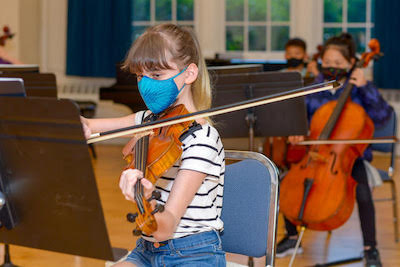 Still looking for a summer program for your children? Hoff-Barthelson Music School is a great setting for a stimulating, challenging, fun-filled, and safely socially distanced summer arts program for students in grades 1-12.
Still looking for a summer program for your children? Hoff-Barthelson Music School is a great setting for a stimulating, challenging, fun-filled, and safely socially distanced summer arts program for students in grades 1-12.
This year’s Summer Arts Program provides a great opportunity for students to jump start learning, explore new possibilities, make dramatic progress, and form lasting friendships.
Space is limited to 45 students per session and is on a first come, first served basis. Early registration is encouraged. Early-bird discounts available through May 31. Need-based financial aid is available.
For younger children (Grades 1 – 6), the Summer Arts Junior Program is a superb way to try new instruments for the first time, discover their particular passion(s), make rapid progress on instruments they may already be studying, and experience the joy of playing with others.
For older students (Grades 7 – 12), the Summer Arts Senior Program offers opportunities to play together in large and small ensemble configurations, explore new instruments and musical styles.
Students are offered a variety of class options for each session including Orchestra, Chamber Music, Group Instrumental Lessons, Piano for Non-Pianists, World Drumming, Jazz Ensemble, Improvisation, Music History, Music Theory, and Composing with Technology.
After registering, students and families meet with Summer Arts Program Director Joseph Piscitelli to create a daily schedule tailored to their individual needs and interests. Students receive personalized attention on a daily basis from gifted teachers with decades of experience.
The Program will run as two two-week sessions. Session 1: June 28 – July 9; Session 2: July 12 – 23. Each session will accommodate both Junior and Senior grades. Junior: 9 am – 12 pm, Monday – Friday; Senior: 1:00 – 4:00 pm, Monday – Friday. (The School will be closed on July 5 in observance of Independence Day.)
Hoff-Barthelson Music School is located at 25 School Lane Scarsdale, NY 10583. For more information on the program, click here or call 914-723-1169.
Hoff-Barthelson will also offer Summer Lessons both in-person and online -- for all ages including adults. Summer learning loss – the erosion of skills gained over an entire school year that results from setting aside one’s musical studies over the summer – is one of the music educators’ most troublesome foes. On average, students who step away from their musical studies over the 12 week summer vacation season lose 2 ½ months of hard-won gains, often catching back up to their level of playing in June in late November.
Students who continue to practice and attend lessons over the summer continue to build their skills enjoying considerable advantages as a result.
Because summer is a season of recreation, travel, and new adventures for students and teachers alike, Hoff-Barthelson’s Summer Lesson program is designed to allow for maximum flexibility. Teachers set their own schedules, as do families. Students may register for as few or as many lessons as they like.
Summer Lesson students enjoy opportunities to participate in in-person and online performance workshops and recitals at no extra charge. In-person accompaniment service will also be available.
A discount of 10% is available when purchasing packages of three or more lessons per student with a single teacher. Click here for more information.













